Author Archives: Ajitesh Kumar
Measure Code Quality using Cyclomatic Complexity
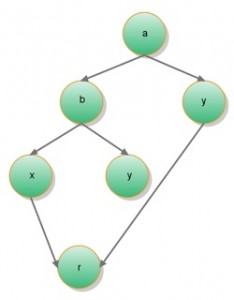
The article talks about how McCabe’s cyclomatic complexity could be used to measure several different aspects of code quality. The objective of this article is to help developers quickly assess code quality by looking at the code. However, let’s try and quickly understand what is cyclomatic complexity and how could it be measured? Thanks for reading it further. And, apologies for spelling mistakes. What is Cyclomatic Complexity? Cyclomatic complexity is a measure of code quality that takes into account the number of independent paths through a piece of code. A high cyclomatic complexity indicates that a piece of code is more difficult to understand and maintain, and is, therefore, more …
Frequentist vs Bayesian Probability: Difference, Examples
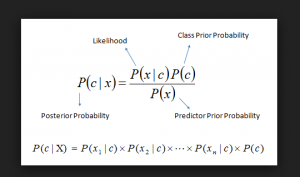
In this post, you will learn about the difference between Frequentist vs Bayesian Probability. It is of utmost importance to understand these concepts if you are getting started with Data Science. What is Frequentist Probability? Probability is used to represent and reason about uncertainty. It was originally developed to analyze the frequency of the events. In other words, the probability was developed as frequentist probability. The probability of occurrence of an event, when calculated as a function of the frequency of the occurrence of the event of that type, is called Frequentist Probability. Frequentist probability is a way of assigning probabilities to events that take into account how often those events actually occur. Frequentist …
Checklist for Effective Code Review
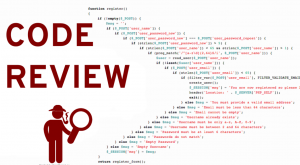
Are you involved in day-to-day code reviews? Would you like to suggest to your team members a checklist that can be used for code reviews? In this blog post, you will learn about key areas to focus on when doing code reviews. Following is a checklist that one could use while doing code review: Functional Suitability: Understand the requirement/use case/user story and ask whether the code you are reviewing meets the requirement or not. This includes the alternate and exception use case flows to be considered for review. Functional suitability is one aspect of code quality that refers to how well the code meets the needs of the user. In …
SVM Classifier using Sklearn: Code Examples
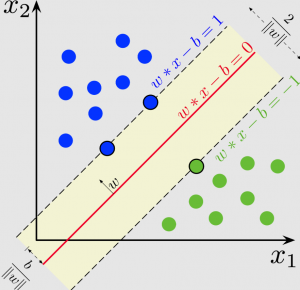
In this post, you will learn about how to train an SVM Classifier using Scikit Learn or SKLearn implementation with the help of code examples/samples. An SVM classifier, or support vector machine classifier, is a type of machine learning algorithm that can be used to analyze and classify data. A support vector machine is a supervised machine learning algorithm that can be used for both classification and regression tasks. The Support vector machine classifier works by finding the hyperplane that maximizes the margin between the two classes. The Support vector machine algorithm is also known as a max-margin classifier. Support vector machine is a powerful tool for machine learning and has been widely used …
NFT Use Cases & Applications Examples
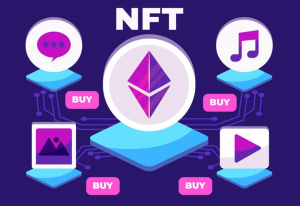
What are NFTs? NFTs (non-fungible tokens) are a relatively new type of cryptocurrency that have a wide range of potential applications. They are different from traditional cryptocurrencies like Bitcoin because each individual NFT is unique and cannot be replaced by another token. This makes them perfect for use in a variety of applications, from digital collectibles to decentralized marketplaces. In this blog post, we will explore some of the most interesting NFT use cases and applications. What are some of the popular use cases for NFTs? The following are some of the most common use cases for NFTs: NFTs can be used to represent ownership of digital assets such as …
Non-fungible tokens (NFTs) & Real-world examples

You may have heard the term “non-fungible tokens (NFT)” but what do they mean? Basically, they are a type of cryptocurrency that is unique and not interchangeable. Unlike regular Bitcoin or Ethereum, which can be divided and traded like shares, non-fungible tokens are indivisible and have their own value. This makes them perfect for use in specific applications like digital art or collectibles. Here we’ll discuss what are NFTs and what are some real-world examples of where non-fungible tokens are being used today. What are Non-fungible tokens (NFT) and how do they work? Non-fungible tokens are unique digital assets. The word non-fungible means that each token is not interchangeable with …
Stochastic Gradient Descent Python Example
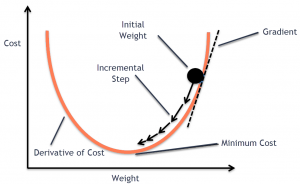
In this post, you will learn the concepts of Stochastic Gradient Descent (SGD) using a Python example. Stochastic gradient descent is an optimization algorithm that is used to optimize the cost function while training machine learning models. The most popular algorithm such as gradient descent takes a long time to converge for large datasets. This is where the variant of gradient descent such as stochastic gradient descent comes into the picture. In order to demonstrate Stochastic gradient descent concepts, the Perceptron machine learning algorithm is used. Recall that Perceptron is also called a single-layer neural network. Before getting into details, let’s quickly understand the concepts of Perceptron and the underlying learning …
Dummy Variables in Regression Models: Python, R
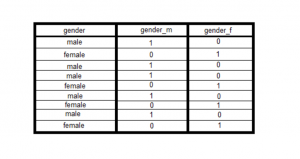
In linear regression, dummy variables are used to represent the categorical variables in the model. There are a few different ways that dummy variables can be created, and we will explore a few of them in this blog post. We will also take a look at some examples to help illustrate how dummy variables work. We will also understand concepts related to the dummy variable trap. By the end of this post, you should have a better understanding of how to use dummy variables in linear regression models. As a data scientist, it is important to understand how to use linear regression and dummy variables. What are dummy variables in …
Linear regression hypothesis testing: Concepts, Examples
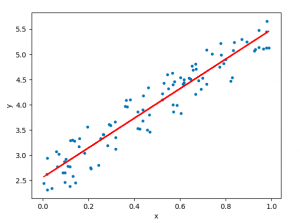
In relation to machine learning, linear regression is defined as a predictive modeling technique that allows us to build a model which can help predict continuous response variables as a function of a linear combination of explanatory or predictor variables. While training linear regression models, we need to rely on hypothesis testing in relation to determining the relationship between the response and predictor variables. In the case of the linear regression model, two types of hypothesis testing are done. They are T-tests and F-tests. In other words, there are two types of statistics that are used to assess whether linear regression models exist representing response and predictor variables. They are …
Correlation Concepts, Matrix & Heatmap using Seaborn
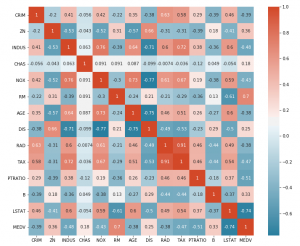
In this blog post, we’ll be discussing correlation concepts, matrix & heatmap using Seaborn. For those of you who aren’t familiar with Seaborn, it’s a library for data visualization in Python. So if you’re looking to up your data visualization game, stay tuned! We’ll start with the basics of correlation and move on to discuss how to create matrices and heatmaps with Seaborn. Let’s get started! Introduction to Correlation Correlation is a statistical measure that expresses the strength of the relationship between two variables. The two main types of correlation are positive and negative. Positive correlation occurs when two variables move in the same direction; as one increases, so do …
What is Blockchain & How does it work?
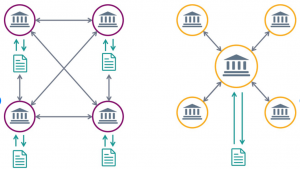
Blockchain is a distributed database that allows for secure, transparent, and tamper-proof transactions. It was first introduced in 2009 as the underlying technology behind Bitcoin. Blockchain has since garnered a great deal of attention due to its potential applications in a variety of industries. In this blog post, we will explore what blockchain is and how it works! What is Blockchain? Blockchain is a distributed database that allows for secure, transparent, and tamper-proof transactions. Blockchain was originally conceived as the underlying technology for the cryptocurrency bitcoin. However, Blockchain has since been found to have many other potential use cases. The key concepts behind Blockchain are decentralization, immutability, and consensus. Blockchain …
When to Use Which Clustering Algorithms?
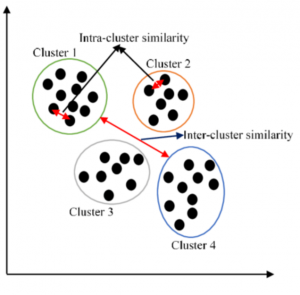
There are many clustering machine learning algorithms to choose from when you want to cluster data. But which one should you use in a particular situation? In this blog post, we will explore the different clustering algorithms and explain when each one is most appropriate. We will also provide examples so that you can see how these algorithms work in practice. What clustering is and why it’s useful Simply speaking, clustering is a technique used in machine learning to group data points together. The goal of clustering is to find natural groups, or clusters, in the data. Clustering algorithms are used to automatically find these groups. Clustering is useful because …
AI / Data Science Operating Model: Teams, Processes

Realizing value from AI/data science or machine learning projects requires the coordination of many different teams based on an appropriate operating model. If you want to build an effective AI/data science operation, you need to create a data science operating model that outlines the steps involved in how teams are structured, how data science projects are implemented, how the maturity of data science practice is evaluated and an overall governance model which is used to keep a track of data science initiatives. In this blog post, we will discuss the key components of a data science operating model and provide examples of how to optimize your data science process. AI …
Deductive & Inductive Reasoning: Examples, Differences
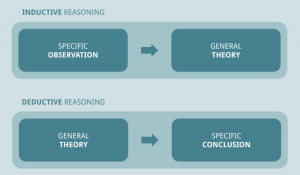
When it comes to data science, there are two main types of reasoning that you need to be familiar with: deductive and inductive. Both of these techniques are important in order to make sound decisions based on the data that you’re working with. In this blog post, we’ll take a closer look at what deductive and inductive reasoning are, what are their differences, and how they’re related to each other. What is deductive reasoning? Deductive reasoning is an important tool in data science. Deductive reasoning is the process of deriving a conclusion based on premises that are known or assumed to be true. In other words, deductive reasoning allows you …
What is Data Quality Management? Concepts & Examples
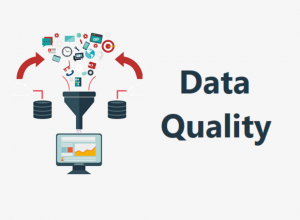
What is data quality? This is a question that many people ask, but it is not always easy to answer. Simply put, data quality refers to the accuracy and completeness of data. If data is not accurate, it can lead to all sorts of problems for businesses. That’s why data quality is so important – it ensures that your data is reliable and can be used for decision-making purposes. Data is at the heart of any enterprise. It is essential for making sound business decisions, understanding customers, and improving operations. However, not all data is created equal. In order to make the most out of your data, you need to …
Steps for Evaluating & Validating Time-Series Models
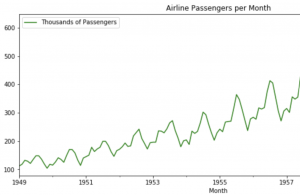
Time-series machine learning models are becoming increasingly popular due to the large volume of data that is now available. These models can be used to make predictions about future events, and they are often more accurate than traditional methods. However, it is important to properly evaluate (check accuracy by performing error analysis) and validate these models before you put them into production. In this blog post, we will discuss the different ways that you can evaluate and validate time series machine learning models. We will also provide some tips on how to improve your results. As data scientists, it is important to learn the techniques related to evaluating time-series models. …

I found it very helpful. However the differences are not too understandable for me